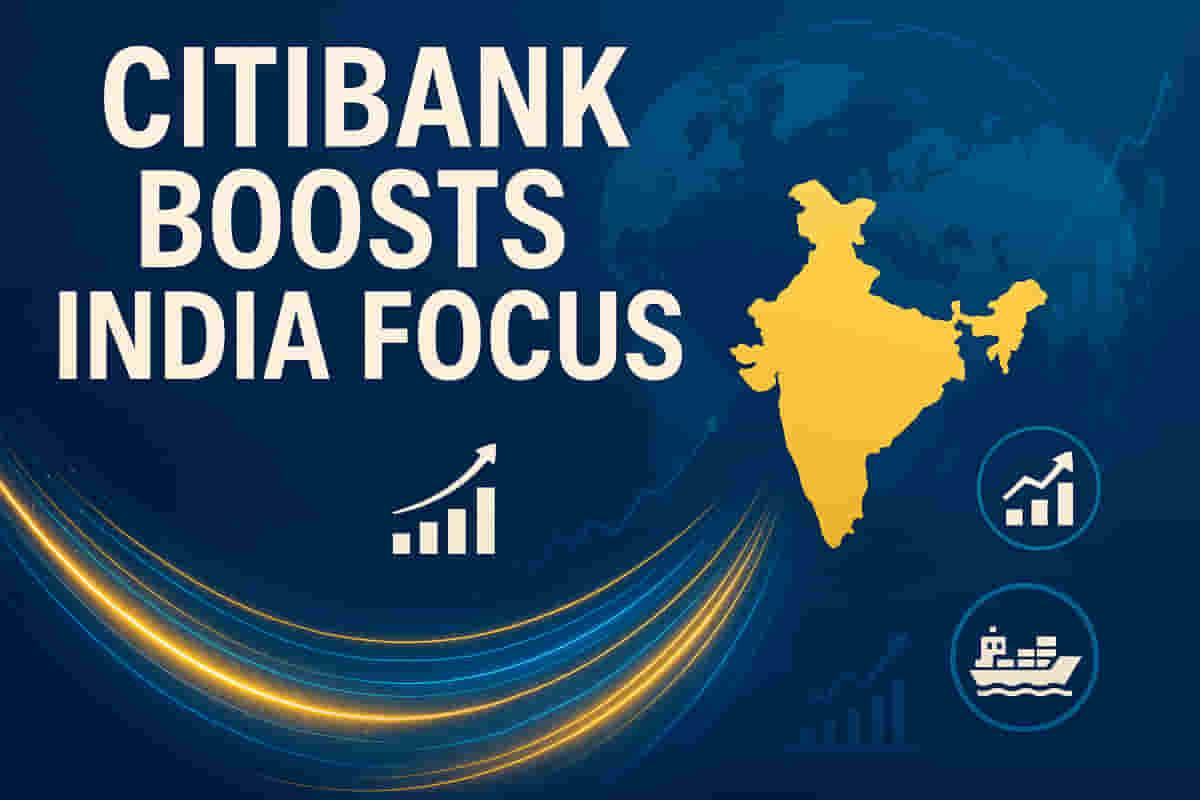Citibank Plans Major Capital Deployment in India, Targets International Deals for Indian Firms
Banking/Finance
|
30th October 2025, 12:11 AM

▶
Short Description :
Detailed Coverage :
Citibank is set to increase its capital deployment in India, with a broadened focus on supporting Indian companies in their international expansion and deal-making activities. Viswas Raghavan, Citi's head of banking and executive vice chair, stated that Indian companies are increasingly ambitious and seeking global opportunities, and Citi is committed to providing them with both advice and capital to achieve their goals. This strategic shift comes amid robust global Mergers and Acquisitions (M&A) activity, which Raghavan attributes to several key drivers. These include the pressure on companies to demonstrate growth to justify high valuations, the need to restructure supply chains due to geopolitical tensions and trade friction, and the significant amount of capital available from private equity firms looking for investment opportunities.
Raghavan also touched upon the coexistence of public markets and private capital, noting that both serve different purposes but are currently experiencing a surge in liquidity. He acknowledged the substantial "debt maturity wall," where significant amounts of debt are coming due for refinancing, ensuring a steady pipeline of corporate finance activity. The outlook for the Indian IPO market is described as "exceptionally strong," with expectations of surpassing current records. Citi's deep global credit capabilities, including a significant joint venture with Apollo, position it to support these large-scale transactions.
Impact: This news is highly significant for the Indian stock market and businesses. Increased capital deployment by a global financial giant like Citibank into India signals strong investor confidence. It will likely facilitate more cross-border M&A, boost domestic consolidation, and potentially lead to more successful IPOs. This activity can drive market liquidity, economic growth, and provide Indian companies with greater access to international markets and capital, thereby positively impacting stock valuations and investor sentiment. Rating: 9/10
Difficult terms explained: Mergers and Acquisitions (M&A): The process where companies combine or one company takes over another. Private Equity (PE): Investment funds that are not listed on a public exchange and invest in companies. Quantitative Easing (QE): A monetary policy where central banks inject money into the economy by buying assets. Friendshoring: Moving supply chains to countries considered political allies. Nearshoring: Moving business operations closer to one's own country. Onshoring: Moving business operations back to one's own country. Debt Maturity Wall: A period when a large amount of corporate debt is due for repayment or refinancing. High-grade debt: Debt issued by companies with strong credit ratings, considered low-risk. High-yield debt: Debt issued by companies with lower credit ratings, considered higher-risk but offering higher returns. IPO (Initial Public Offering): The process by which a private company first sells shares to the public. Crypto (Cryptocurrency): A digital or virtual currency secured by cryptography. Digital Assets: Any asset that is not a physical asset and exists in a digital format. Cross-border deals: Business transactions that involve entities from different countries. Domestic consolidation: Mergers and acquisitions within a single country to create larger, more dominant companies. RBI (Reserve Bank of India): India's central bank, responsible for monetary policy and financial regulation. AI (Artificial Intelligence): The simulation of human intelligence processes by machines, especially computer systems.